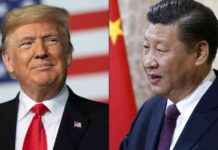Elon Musk and Donald Trump: A Duo That Could Pose a Real Threat to European Digital Policy
As the world grapples with the aftermath of Donald Trump’s election as the next President of the United States, many politicians are calling for a reevaluation of various policies, including security, economy, and now, digital policy. Trump’s plans are at odds with European ideals of fair competition, sparking concerns among experts like Dennis-Kenji Kipker, a professor of IT security law at the University of Bremen.
American Tech Giants Encouraged to Expand Monopoly
In Germany, as in many other countries, American digital giants dominate the market in areas like social media, office applications, and cloud products. With Trump’s focus on deregulation and protectionism, these companies stand to benefit even more. Dennis-Kenji Kipker warns that “Big Tech is gearing up to expand its monopoly position,” a sentiment echoed by the congratulatory messages from top executives at Microsoft, Apple, Amazon, Meta, and Google. Among those celebrating Trump’s win is Elon Musk, who actively supported Trump during his campaign and now wields significant influence over US technology policy.
The Call for Derisking in Response to Trump
To counter the potential risks posed by Trump’s policies, Kipker advocates for derisking strategies in Germany and Europe. This involves minimizing dependency on US companies by shifting towards German or European solutions, ideally open-source software. By leading the way in adopting such strategies, the next German government could inspire private enterprises to follow suit, reducing vulnerabilities to US tech giants.
Potential Challenges in Data Privacy and AI Regulation
Trump’s administration has already clashed with Europe over data privacy, with Kipker warning of potential further deterioration in this area under Trump’s leadership. The US-EU Privacy Shield and regulations on artificial intelligence are at risk of being undermined, potentially leading to significant disruptions in transatlantic data flows and regulatory standards.
Europe’s Opportunity for Digital Sovereignty
Despite the challenges posed by Trump’s policies, Kipker sees an opportunity for Europe to assert its digital sovereignty by adhering to its own regulations and developing alternatives to US tech giants. By viewing the political shift in the US as a chance to enhance European digital autonomy, rather than a burden, Europe can pave the way for a new era of innovation and independence in the digital realm.
In the wake of Trump’s presidency, the world faces a critical juncture in digital policy, where choices made today will shape the future of technology and innovation on a global scale. It is imperative for governments, businesses, and individuals to consider the implications of digital dependence and take proactive steps to safeguard their interests and values in an increasingly interconnected world. The decisions made now will reverberate for generations to come, underscoring the need for strategic foresight and collaborative action in navigating the complex landscape of digital governance and technology development.

















